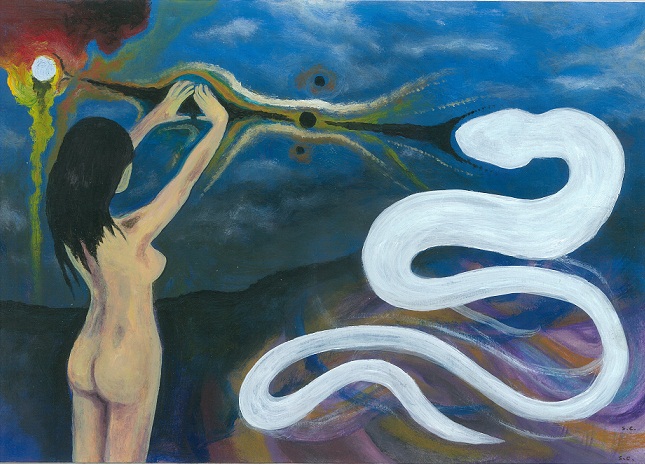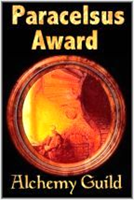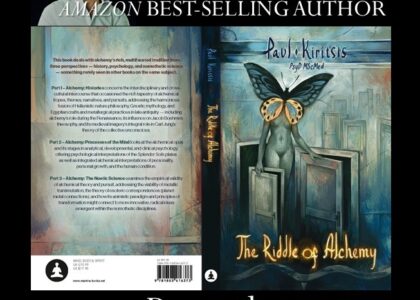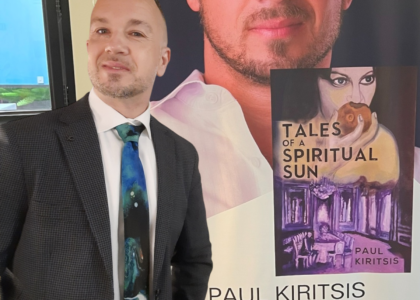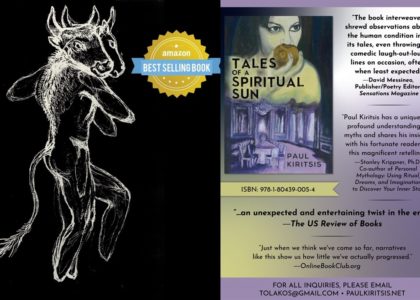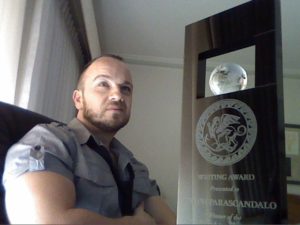
First and foremost, I would like to commend all those who attempted one of two essay questions prescribed by the “It’s all Greek to me” writing competition, a contest which commenced at the end of July and finally concluded on the 23rd October. I acknowledge that the questions themselves were anything but a cakewalk, and so my sincerest commendations go out to all those who made the attempt.
For those who may have forgotten, entrants were required to answer one of the following:
History is the study of our collective memories. It evaluates our evolutionary path by looking at the consequences of decisions made by the administrative order of our day. In studying these consequences, we strive to better ourselves and the human condition so that the world might be made a better place for the lives of our children, and their children, and so forth. Sadly, for anyone studying the subject long enough it becomes clear that we continue to make the same mistakes, over and over and over again. So, if we’ve been made aware of these mistakes through historical analysis, then why do we continue to make them? Discuss.
OR
What we find in history is that the prevailing culture of the times usually appropriates quantitative “science” or religion or a syncretisation of both to assert the undisputed reality of its own cosmogony, and to declare the cosmogonies of all cultures that have come beforehand to be either erroneous, inferior or primitive. Interestingly, when we study history we see that what constitutes and defines law and knowledge in one era is rudely dismissed or banished by insights and developments of a subsequent era. In light of this, would it be right to assume that our knowledge, our reality, the world as seen through our eyes, is more ‘real’ than that which defined the world of our ancient ancestors? Discuss.
Needless to say, I thoroughly enjoyed reading and marking all of them. There were many different perspectives offered, with many entrants disputing and outright challenging the validity of academic inquiry into “history” itself. Most entries chose to dissect the first question, which is understandable given that the second required an intense and rigorous investigation into the hermeneutics of culture. All in all, the metaphysical, psychological and philosophical trajectories offered were immensely satisfying (a lot of deep thought out there folks!), though as I have already stipulated in an earlier blog on essay structure, the mechanics employed were mostly below par, if not absent altogether. I was quite forgiving of minor grammatical errors, but entries were heavily docked for the absence of any structure.
The criteria which I used to mark the entries were as follows: (1) content, including originality of thought, use of voice, standard vocabulary and usage; (2) mechanics and organisation, including mechanical correctness and the presence of structure; (3) consistency and methodology, comprised of a fundamental ability to sustain and argue a point effectively, as well as the ability to maintain a sympathetic approach to historiographical issues and analysis. I placed greater emphasis on originality, structure and the acknowledgement of historiographical problems/issues posed by both questions.
The winner of the competition, Joseph Parascandalo, scored highly in all areas. His entry was exactly what I was looking for and I’ll explain why. First and foremost, Joseph clearly indicated which essay question he was answering. This should be the first thing a participant addresses; he or she must obviously bring to the judge’s attention what he or she writing about. It’s startling that many of the entries made no such mention of this! More importantly though, Joseph’s essay response was structured quite well and unravelled in a clear and logical manner. It was very easy to follow his argument.
He begins by defining the concept of “history” as a construct of the Western mind, explicating that it is “a general term utilised to reference an account of a past experience or event expressed both casually and formally.” He also places it within the context of the essay question. The purpose of history is to “provide a viable and true representation of human experience that occurred before the current time with the view and hope it will serve to both enlighten and edify, to render an insight to both the good and bad that has transpired over the passage of time.” Then he anatomically dissects it, exploring the relationship between history and reality, history and myth, as well as history and conspiracy theory, concepts which in the contemporary world have become rather blurred. Hence, we have an engagement of the hermeneutics of modern culture, an observation I was keenly looking for.
In addition, Joseph’s response takes into careful consideration the historiographical issues which beg to be addressed. Conventional written history is indeed written by the socio-political warriors, the sons of Aries as I call them, and is therefore biased and flawed. Furthermore, because the accounts have been written, reasoned and explained away by the aggressors, they can usually offer no new perspectives for politico-social and religious cohesion. It’s an unbroken chain where the torch is passed on from one “Arian” race to the next, over and over and over again. Joseph draws attention to this when he explains that “It is these refuted sources of distortion to the historical record–the ‘minds of men’–impose on the manner and accounting of history that contributes significantly to the repetitions failing of humankind to overcome through remedy, its shortcomings to achieve a truly civilised, sociologically harmonious existence.”
From the perspective of metaphysics and social philosophy, history itself has been paved by the masculine aesthetic which seeks expression through the subjugation of nature, and often involves mass destruction and the loss of life. This form of consciousness has its roots in the supposition that domination is divine, and hence to practice it is heroic, noble and transcendental. Joseph brings attention to this tenet later on, when he elucidates that “a major factor in the continued barbarism of man lies in the inherently violent nature of human beings driven by ego that plays a significant factor in discounting any lessons attributable to historical experience, no matter how egregious the account.” The statement itself betrays an awareness of the anatomical structure of masculine aesthetic consciousness, or what Western analytical psychology terms the “ego”–the resident of the dominant left-hand hemisphere of the brain that burns and judges, differentiates, divides and compartmentalises, sets up social barriers, norms and convictions and other false forms of truth not conducive to unity and togetherness. This was the thematic overture I was after, and it was present in Joseph’s entry.
He also correctly alludes to the historical record as a socio-political or cultural thermometer, which measures the “reality” of any one specific time against all those that have gone beforehand. As a thermometer is powerless to predict the behaviour and vacillation of liquid mercury, so too is any historical record incompetent when it comes to correctly predicting or mediating the future, or as he says “it is just that: a “Document of Record” and not a viable source to reason or rationalise humanity’s future actions.”
His conclusion not only recapitulates his main contention, but draws attention to the psychodynamics of personal and collective history, in other words the microcosm and macrocosm as a pale reflection of the human psyche itself. Mirrored in the annals of history, human nature itself is immeasurable and unquantifiable. Thus any attempt by anthropologists to apply the workings of the oral and written past, itself a one-dimensional overview, to the present and future for the sake of prediction, mediation and the betterment of the human condition is futile. This brings us back to the Hermetic and alchemical tenet, “As above, so below” and “As inner, so outer.” The fundamental laws governing both are the same, so it makes sense that a personal history can and might indeed mirror the course of collective or global history.
He sums up his main contention well, and provides a pertinent concluding line: “Humanity’s history will not serve to alter its ways; it will only serve as a faulty tool to mirror its shortcomings.”
In all, a conscientious, well-written and shrewd response, sympathetic to the historiographical issues, the multidimensional definition of “history” as well as the hermeneutics of culture.
Well done Joseph.
Dr. Paul Kiritsis,
Monday, 7th November 2011

